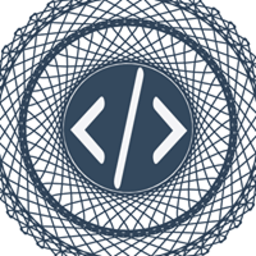
![]()
CodeBunk
CodeBunk is a flexible and collaborative compiler that makes the process of sharing your code with friends and testing potential job applicants simple.
Alternatives to CodeBunk
Missing a software in the list? We are always happy if you help us making our site even better.
CodeBunk Reviews
We have 1 review for CodeBunk. The average overall ratings is 4.0 / 5 stars.
Overall Opinion: Coders have become a hot commodity, in demand at practically any modern business, but along with the rise of the need for programmers, there's been a rise in people in need of coding jobs. While it's great to have applicants to feel the needs of the market, it can be hard to separate the wheat from the chaff during the application process. Whiteboard tests allow you to effectively test applicants who visit your office, but there's little in the way for reasonable remote alternatives. CodeBunk seeks to fill that need by creating a compiler that's designed explicitly for collaborative purposes. Its main goal is serving as a sort of virtual white board space, allowing you to test long distance applicants on the fly rather than having to rely on analysis of their GitHub projects to understand their value, but it can also be a meaningful tool for trading code with friends and learning languages as a collaborative exercise. On its surface, the CodeBunk interface resembles any standard compiler. An editor in the left side panel allows you to type in your code, and a right hand panel displays the results in the Shell. Beneath this is a chat function that allows everyone invited into the space to communicate. To the right of everything are simple icons that control the CodeBunk features: audio and visual chat, creating new sessions, and privacy options, among others. There's not a whole lot of options here, but there doesn't need to be. All the basic functionality one could expect from an app like this is available. 21 languages are supported, and they include reliable standards like Python and Java as well as more nuanced and deeper functioning languages like Clojure and Haskell. Languages can be changed out on the fly so that you can functionally put a self-proclaimed full stack developer's skills to the test. Sessions within CodeBunk are known as "Bunks", and they're private by definition. Within these Bunks you can play around with the tools on hand, but adding new people to your Bunk is as simple as sending them a URL for the Bunk. You'll see everything they type and the results that spill out onto the compiler, and the editor can be used by anyone in the space to increase collaborative control. While much of the world is moving towards a service as subscription model, CodeBunk takes a slightly different approach. Rather than paying a monthly fee for access to Bunk, you pay by the session. Sessions are bundled into sets of 10, but if you're looking for a more traditional subscription plan, you can also subscribe to their Teams option. This lets you to designate a group of users who all have access to your pool of bunks. Monthly rates are scaled to the size of the team and the number of bunks available per month.
Pros: Lets interviewers stress test the skills of potential employees even remotely Simple to share and easy to learn the functions
Cons: A la carte payment options might not appeal to everyone
Features
CodeBunk Videos
hackify.org Use hackify to share code in the cloud and get a friend to help you fix problems.
Comments
About This Article
This page was composed by Alternative.me and published by Alternative.me. It was created at 2018-05-01 06:47:00 and last edited by Alternative.me at 2020-03-06 07:50:14. This page has been viewed 12629 times.